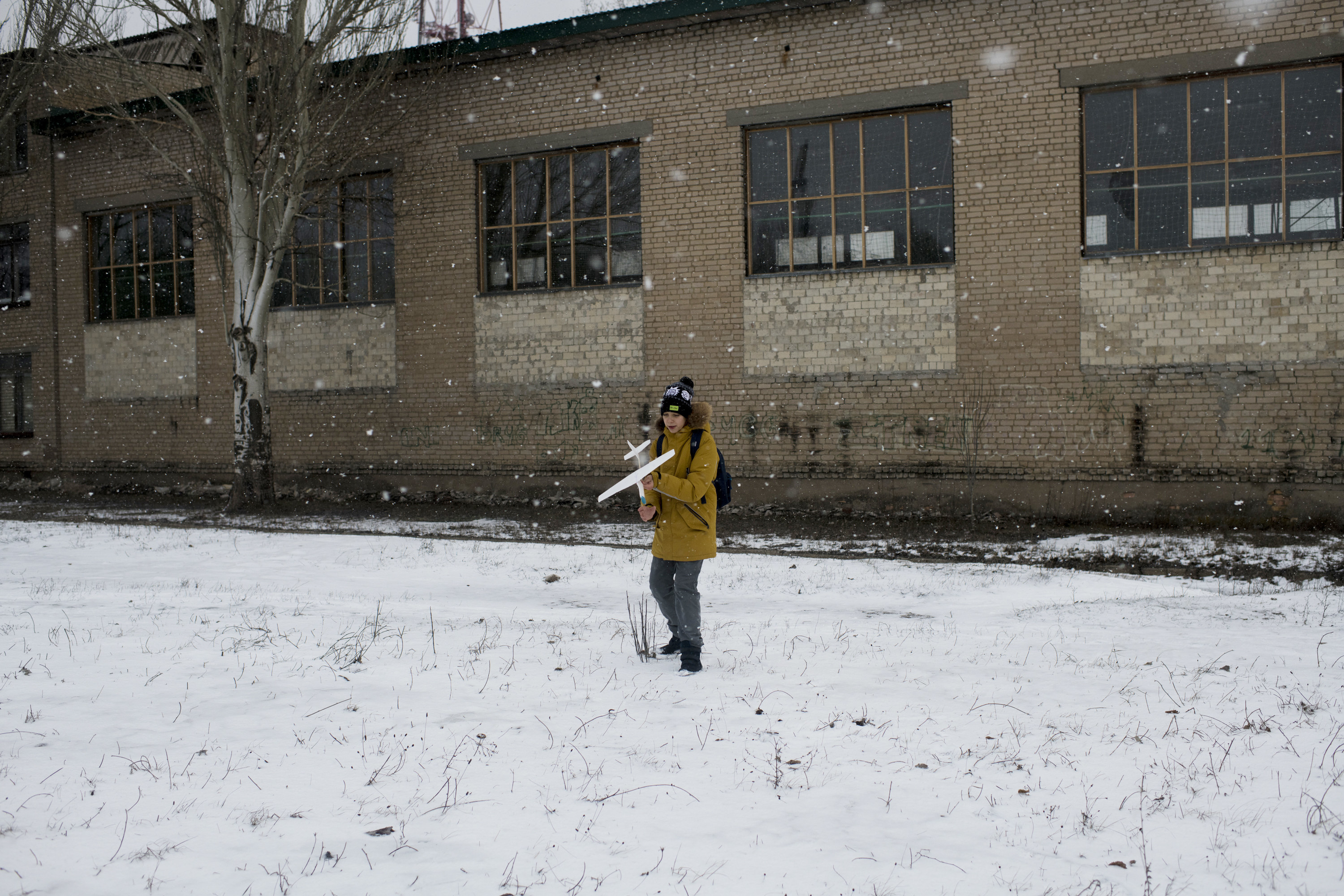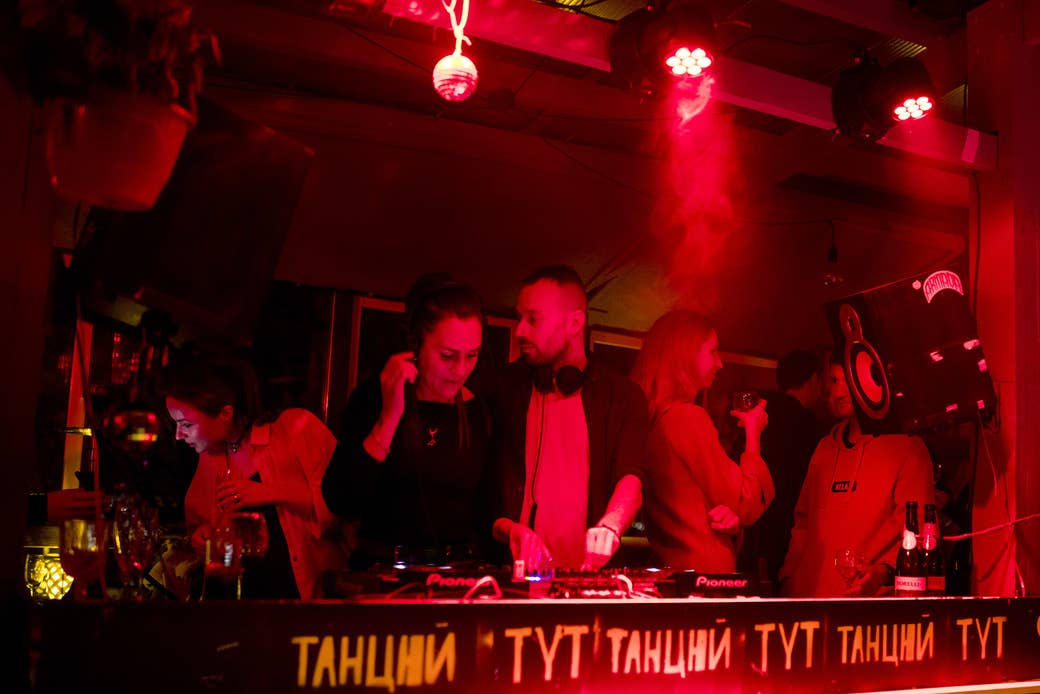
KYIV – A light snow fell over the Ukrainian capital last week as bells from the golden-domed St. Michael’s Monastery rang out. Nearby, two men stopped to pay their respects at a memorial honoring the thousands of soldiers killed during the nearly eight years that Russia has been at war with Ukraine.
Besides the memorial, there are few outward signs in Kyiv of the armed conflict chewing up lives in the eastern Donbas region, where more than 14,000 people have been killed since 2014. The city and its roughly 3 million residents have kept humming along. And they are doing so now, as Russia masses troops and heavy weapons in a horseshoe around much of Ukraine’s border, threatening a new attack.
“In the morning, people go to work. In the afternoon, they are preparing for war. And at night, people are going clubbing,” Liubov Tsybulska, a Kyiv restaurateur and Russian disinformation specialist, told BuzzFeed News. As we spoke, people in Carhartt beanies and platform shoes chomped on New York–style pizza as Unknown Mortal Orchestra played overhead; it could have been a scene in Brooklyn.
“This is the largest mobilization of troops in Europe in decades. And as we speak, Russia is sending even more forces and arms to join them,” US Ambassador Linda Thomas-Greenfield said during a United Nations Security Council meeting to discuss Russia’s actions Monday. Her comments came a week after the US ordered the evacuation of family members of diplomats at the embassy in Kyiv.
And yet, Ukrainians largely aren’t flinching.
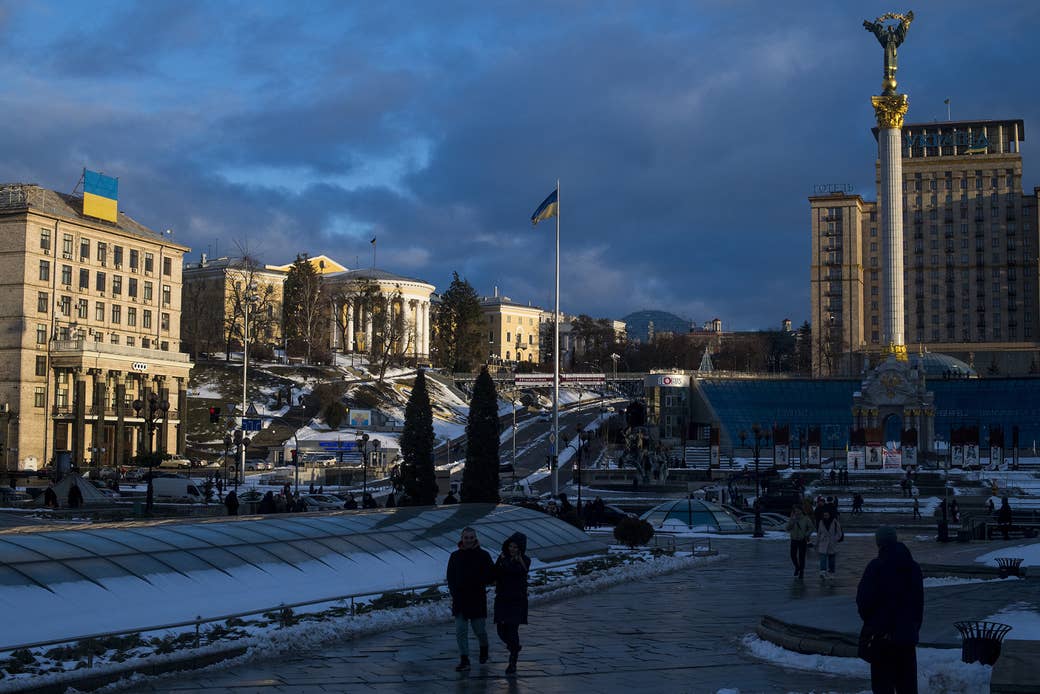
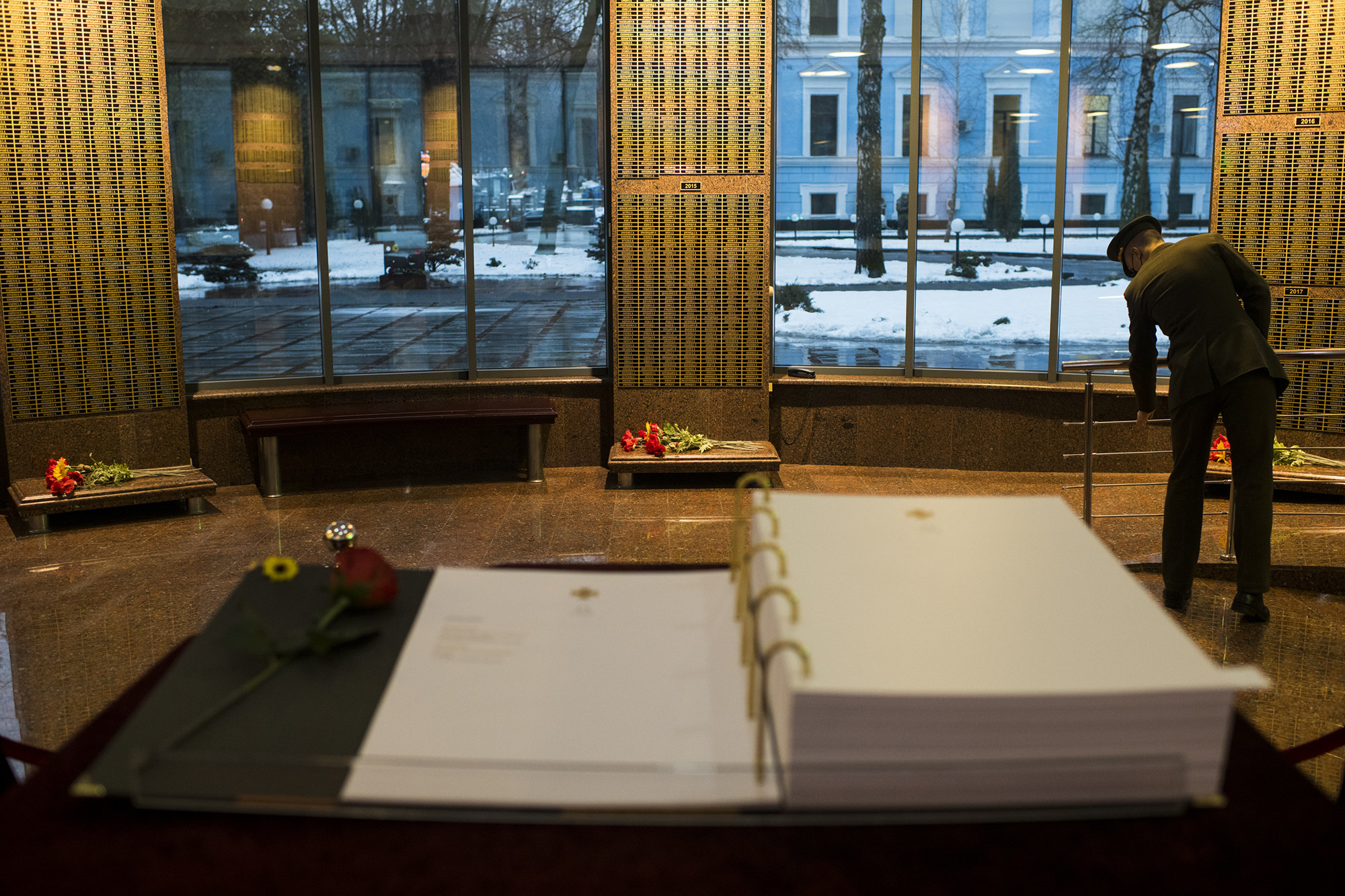
Ukrainians’ calm resolve comes from living for the past eight years with Russian guns aimed at them and an even longer history of facing threats from their country’s former imperial ruler.
“It is not the first Russia crisis we are living through. We’ve been under attack since 2014,” Aliona Osmolovska, a program director at Ukraine’s Ministry of Energy, told BuzzFeed News. “The initial shock with Russia’s latest military buildup this winter turned into annoyance. Then we burst into what we are good at in crisis modes — humor. People are posting memes. There are jokes about how our daily routines now fluctuate between normal office work, family chores, and training at the range or passing a first aid course.”
Indeed, rather than panicking, people are keeping calm and carrying on.
They are organizing volunteer defense forces and holding seminars to teach first aid; prepping bomb shelters and sharing advice on what to pack in “emergency suitcases.” But they are also lining up for films — one playing at the Zhovten movie theater in the historic Podil neighborhood is titled Everything Will Be All Right. They’re enjoying cocktails at the Who & Why speakeasy and hitting the dance floor with friends at quirky bars like Gnezdo.
Vitaliy Andronov, a 3D designer originally from an eastern Ukrainian city that is now controlled by Russia, was at Gnezdo celebrating his 36th birthday.
“I was in Donetsk in 2014, when jets were flying up to the city and where there was bombing, and I was looking at a guy who was aiming an AK-47 at me,” he said. “Now in Kyiv it’s not so scary as it was in 2014.”
He hasn’t changed much of his daily life in light of the recent tensions, except he said he’s thinking about getting a license to keep a shotgun at his home.
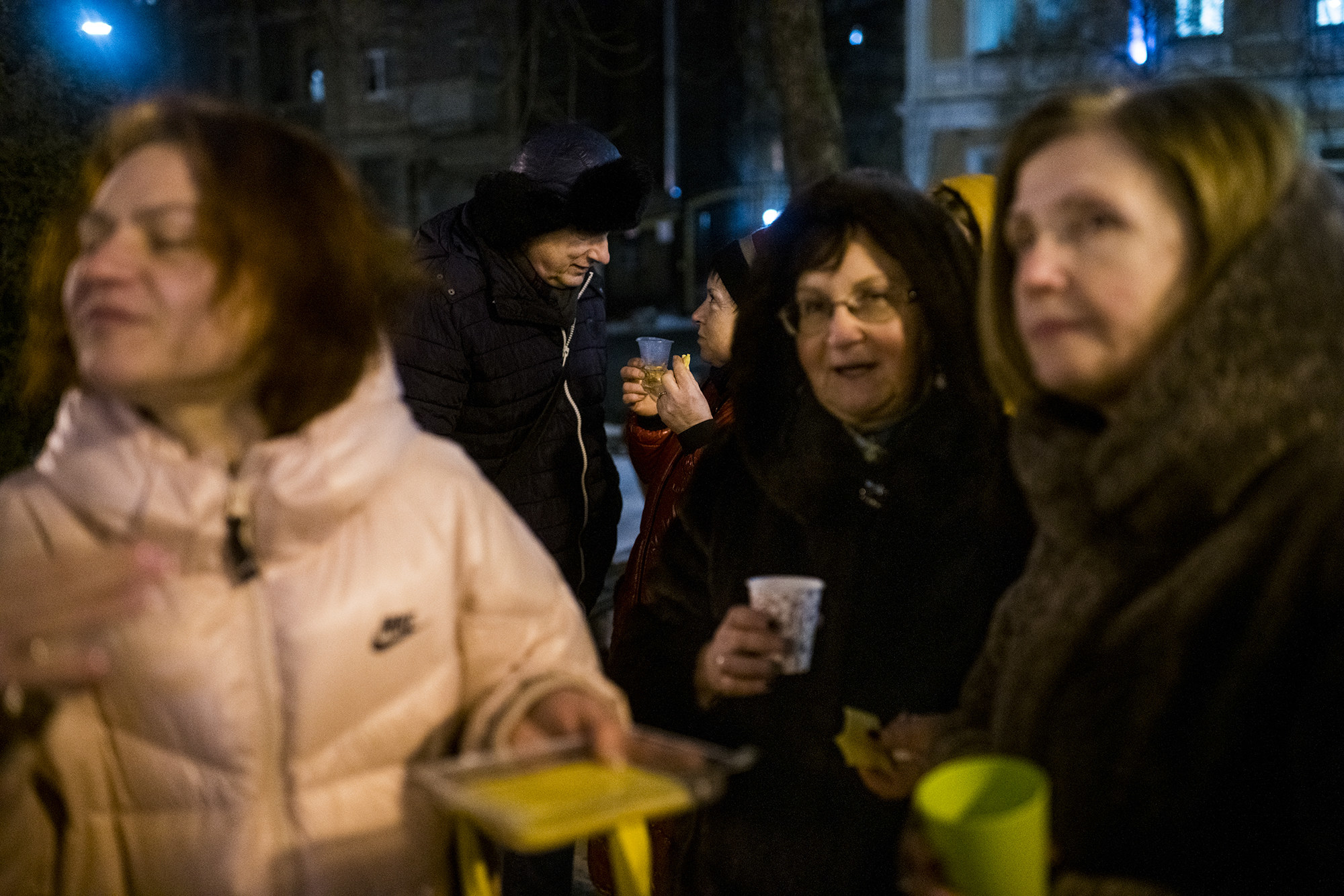
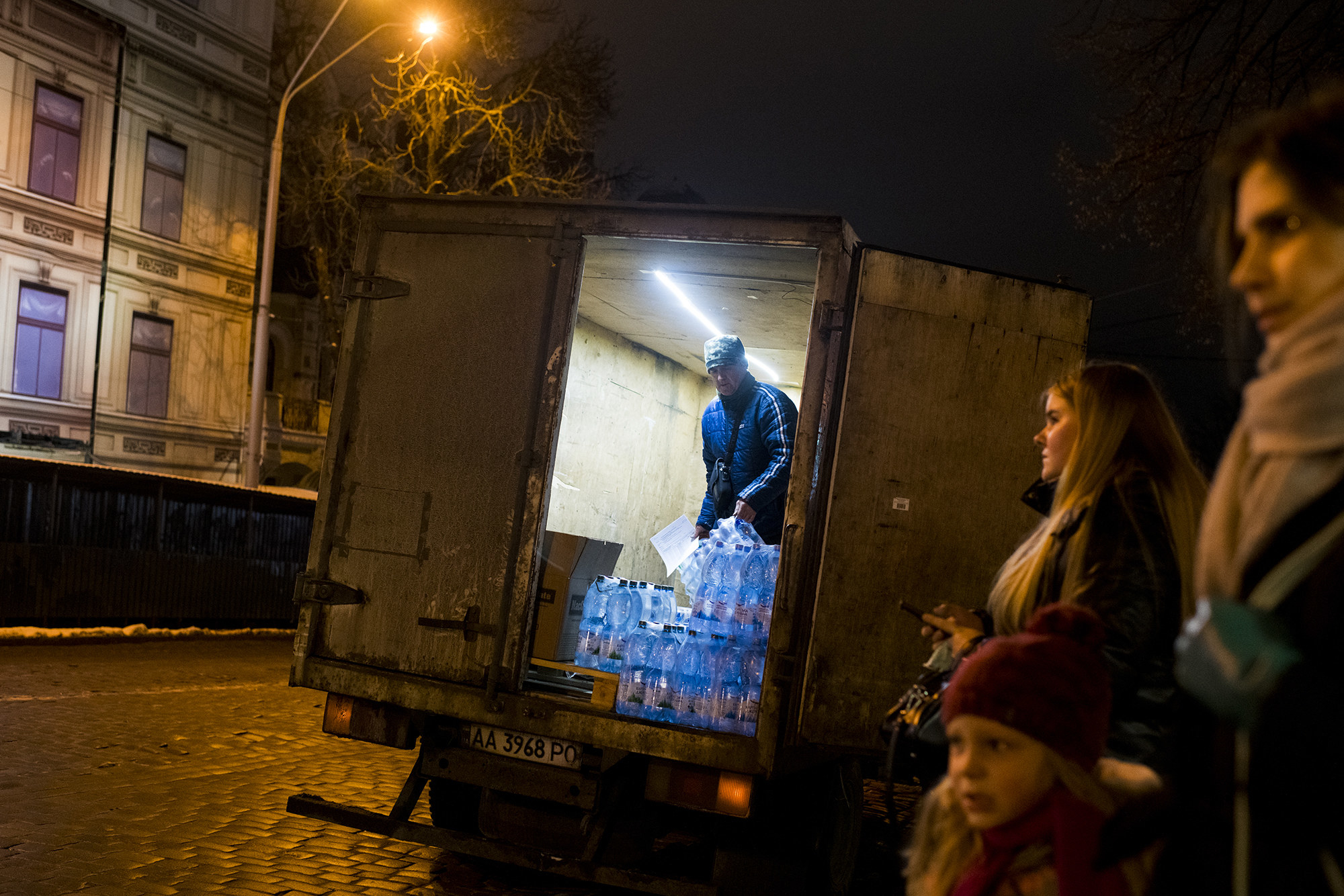
Late last week, a group of women shared a bottle of Ukrainian brandy beside the Golden Gate, the ancient entrance to Kyiv. Their howls could be heard a block away. Offering us a healthy pour, one woman, a university teacher, said war was the furthest thing from their minds. But if it were to happen, she conceded, they would have their party first.
Whether Ukrainians are taking their cues from their president, Volodymyr Zelensky, is debatable. But many agree with him that the threat of a new Russian invasion is not something to panic about — and that it may not even happen.
After he was blasted by some Western observers and US officials for downplaying the potential danger and contradicting assessments from Washington and NATO, Zelensky warned his critics that whipping up hysteria only works in the Kremlin’s favor. And he specifically hit back at President Joe Biden, who said last month that a new Russian attack was “imminent,” saying that such remarks risked destabilizing his economy.
“We don’t have any misunderstanding with the president, but I just deeply understand what is going on in my country, just as he understands what is going on in his country,” Zelensky said of Biden. “I’m the president of Ukraine and I’m based here, and I think I know the details better here.”
Don’t be fooled, though. Just beneath Ukrainians’ steely exterior, there is some worry and uncertainty. And Tsybulska admitted that there is growing anxiety here, even if it’s hard to see.
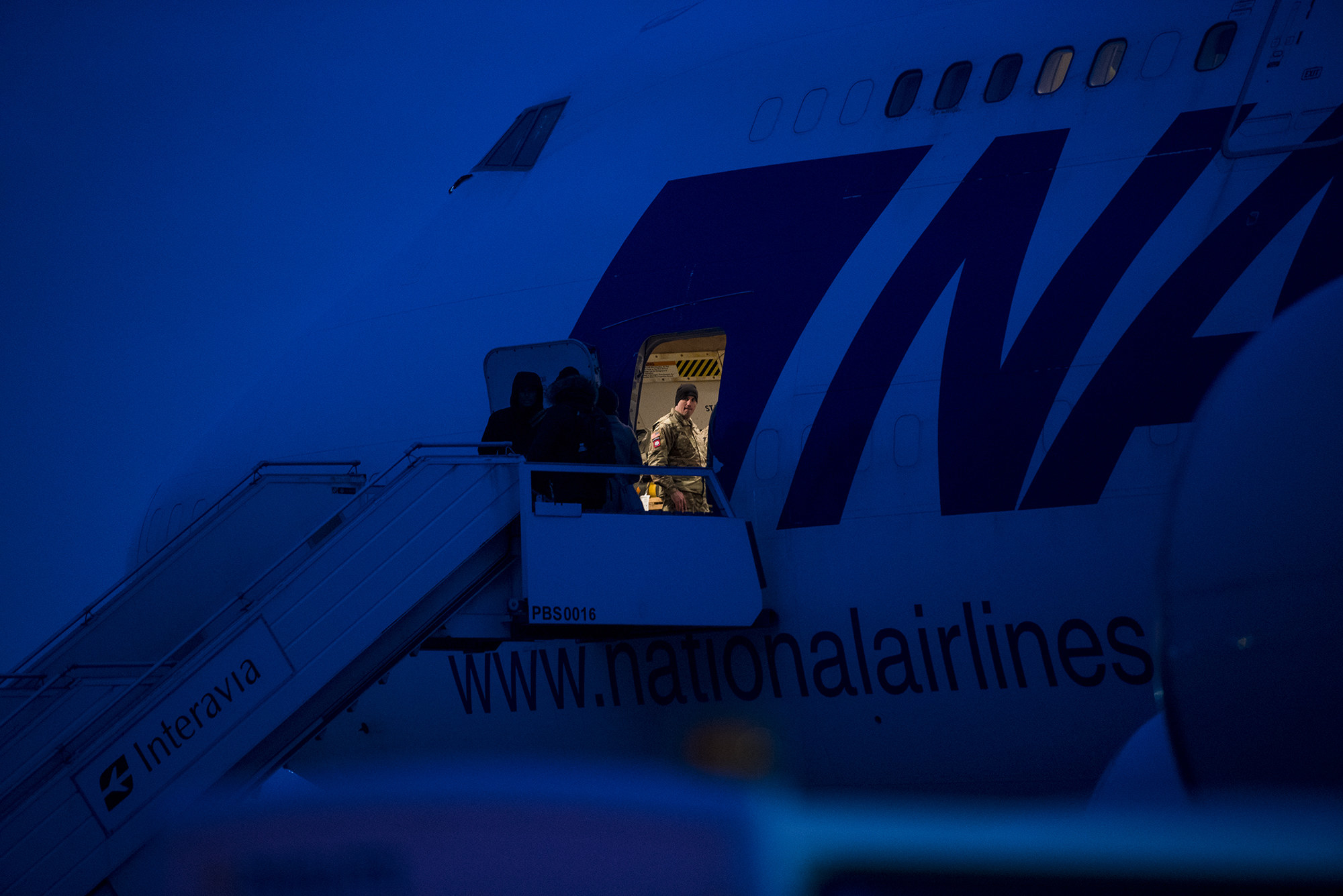
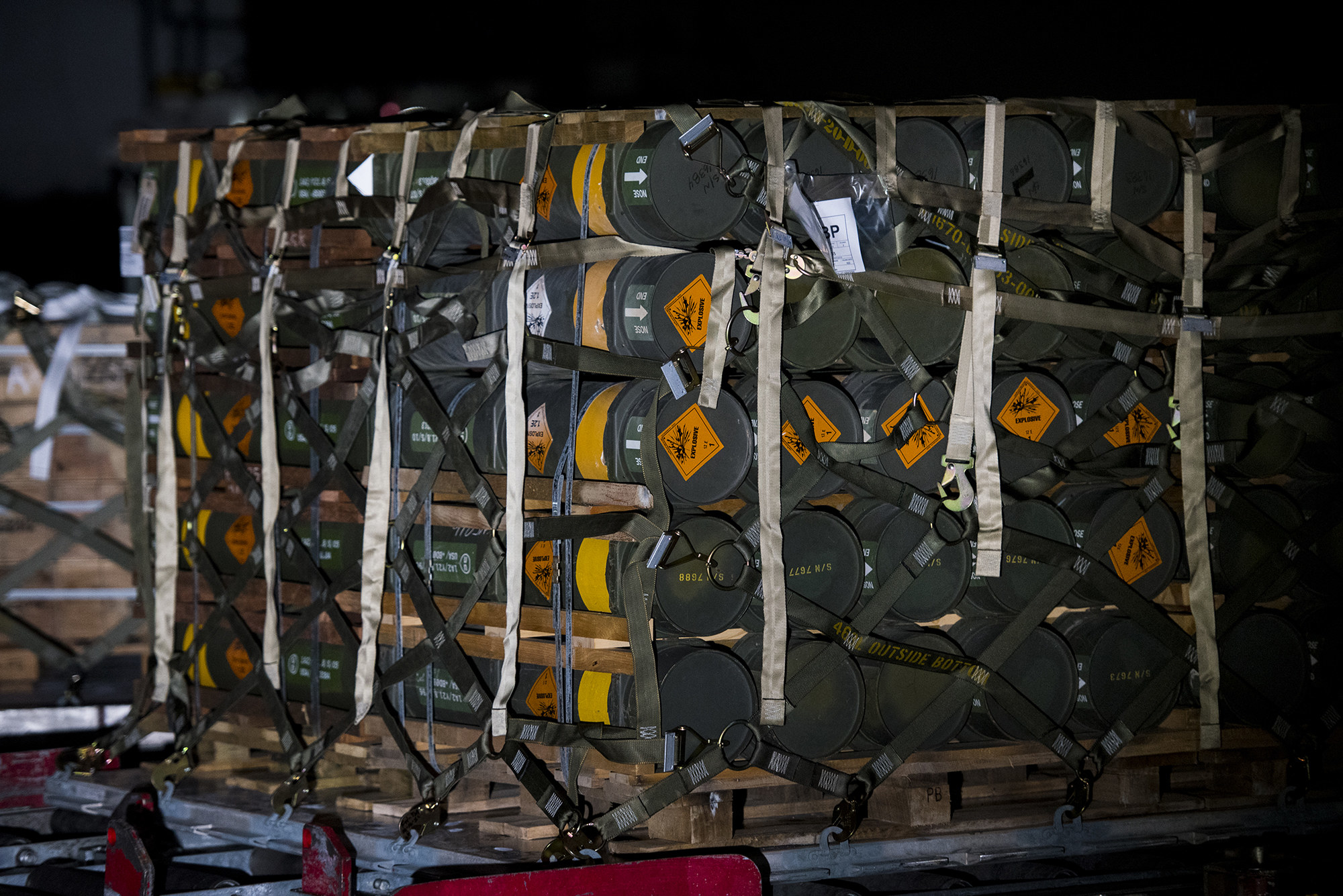
A recent wave of school bomb threats has put people on edge. The government said the number of them has risen sixfold in the past several weeks compared to last year. Zelensky said at his press conference that the threats are coming from numbers associated with people in Russia-controlled Crimea and the Donbas, according to Ukrainian intelligence. The chief of the National Security and Defense Council, Oleksiy Danilov, said he suspects Russian special services are behind the scares. The goal, he added, is to destabilize Ukraine internally, creating chaotic conditions that would be favorable for Russia should Putin decide to invade.
Moscow has waged what Ukraine calls “hybrid warfare” against it for years. A mix of conventional military action, cyberattacks, economic pressure, and disinformation, it keeps its targets anxious and guessing.
While the world waits to see what Russian President Vladimir Putin decides to do with his more than 100,000 soldiers, Tsybulska said she is already seeing information attacks from Russia. (Putin told reporters Tuesday that he hopes “eventually” to find a solution with the US and NATO over Ukraine. “But to talk today about what that will be — I am, of course, not ready to do that,” he said.)
Last month, thousands of Ukrainians, including Tsybulska's mother, received text messages over Viber and other messaging apps that told them an invasion would happen within hours. The numbers had been added to channels without even being invited. When they tried to leave the groups, unknown administrators re-added them.
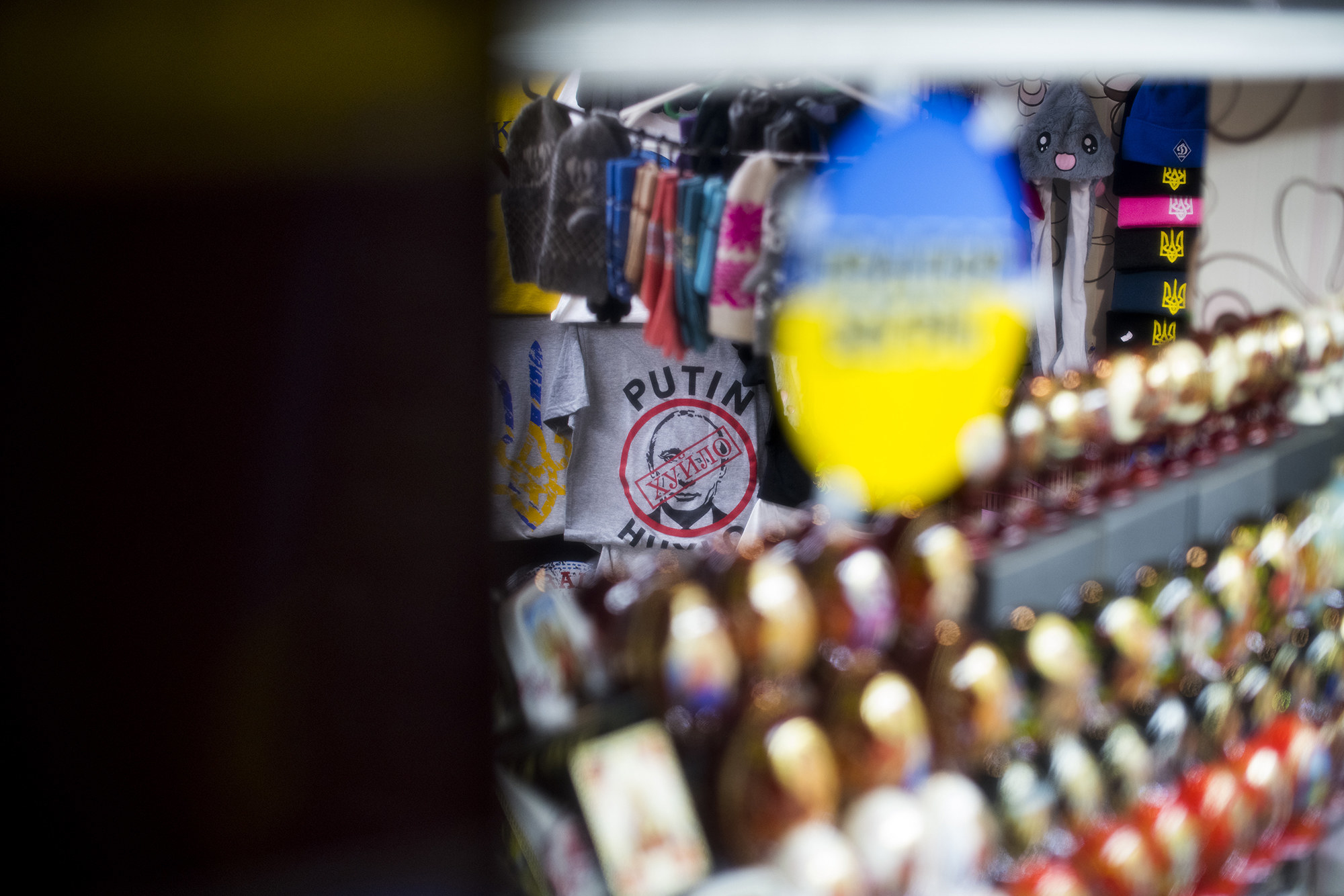
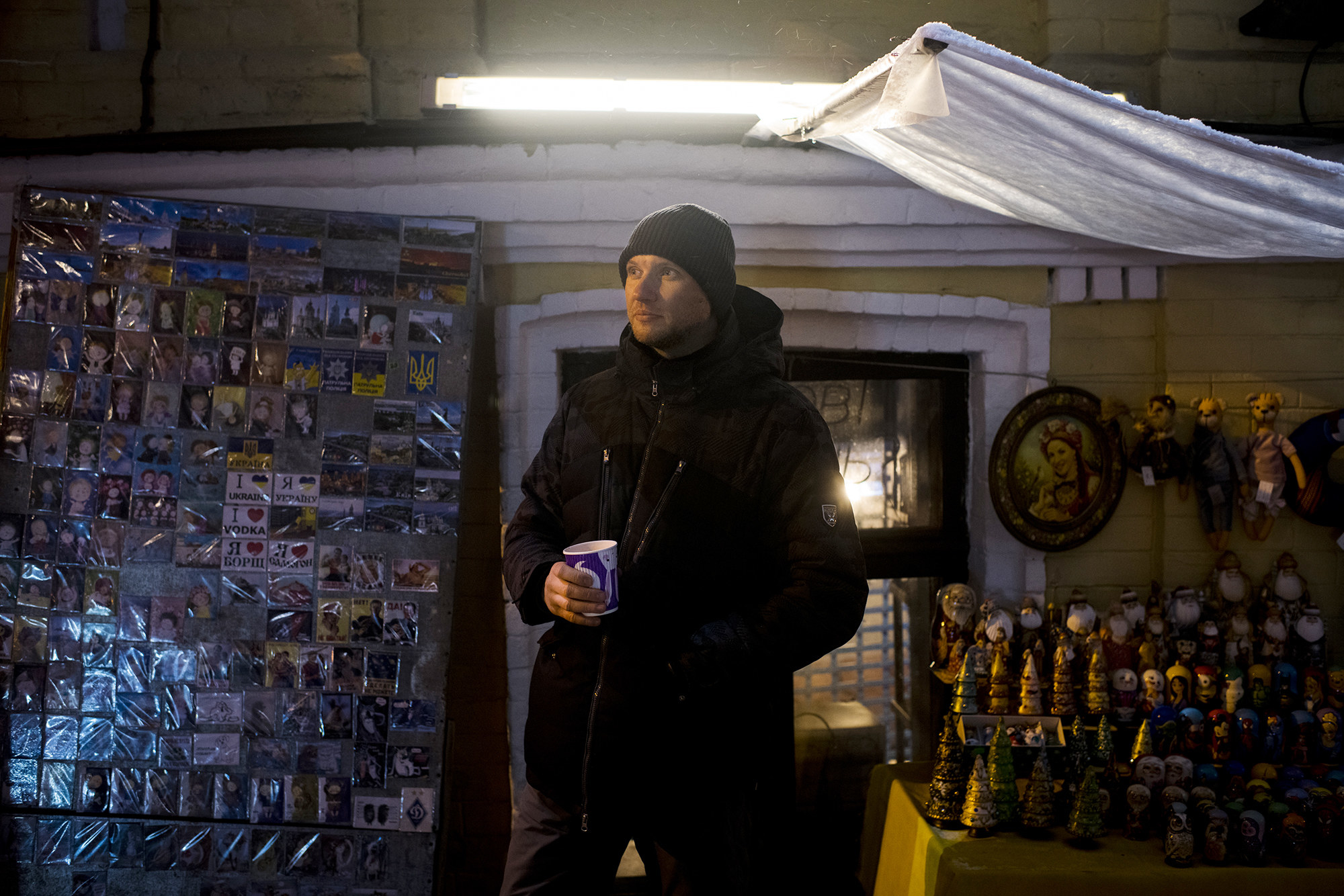
Andriy, a kiosk owner who sells hand-painted matryoshka dolls on Kyiv’s cobblestoned Andriivskiy Descent, said he was concerned about the Russian buildup and not only because it was hurting his business.
“We are on the verge of another big war,” he said, adding that he was making preparations for such an event. “I will send my family someplace, and I will stay behind to protect our city.
“We will fight, but we don’t want to fight,” he added. “We want to think about normal things [like] buying a house and making a garden.”
Nobody knows better what kind of horrific devastation the Russian military is capable of than the people of the eastern Donbas region.
Jaded from punishing years of war, people there say they are exhausted and simply want the conflict to end. Their lives have been turned upside down, and their families ripped apart. It makes it impossible to plan their future. So people find brief respite wherever and whenever they can.
On a wintry day last month, a group of young boys and their fathers gathered at a snowy soccer field to watch a model plane hobbyist fly three homemade aircraft.
The planes zipped through the falling snow, performing loops and barrel rolls. One with a Ukrainian blue-and-yellow ribbon attached to its tail conducted a low fly-by near the boys, who roared with laughter.
“You know, they haven’t seen real airplanes in the sky,” said Igor Moroz, a humanitarian worker. Planes no longer fly over eastern Ukraine, not since a Russian missile shot down Malaysia Airlines Flight MH17 on July 17, 2014, killing all 298 people on board.
Moroz, noting that the boys had been born after the tragedy, added: “It’s a strange life for them.”
